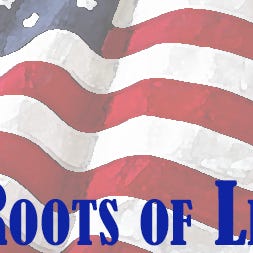A Society of Slackers
If I were to tell you that one in three American men of working age were unemployed, what reaction would that engender?
Dread visions of bread lines? A massive recession? A nation teetering on economic collapse?
What if I added that this appears to be largely voluntary, and also a long-term trend that has recently accelerated?
In 1960, 97% of men ages 25-54 worked. The "labor force participation rate" has been trending steadily downward ever since, and blipped down hard due to the pandemic lockdowns before rebounding to its historic trend line.
I mentioned this one-in-three stat to a friend, and he was flabbergasted. His first question, as was mine, was "how are they getting by?"
The internet offers a litany of options:
- Unemployment insurance.
- Disability claims and lawsuit proceeds.
- Early retirement.
- Living off wives, parents, or other family.
- Savings and speculative investing.
- Working cash jobs.
- Working illegal jobs (e.g. the drug trade).
These, however, are "how" rather than "why."
Some have suggested that the pandemic lockdown introduced many to the idea of down-sizing their lifestyles, that they don't need to work as much (or at all) if they live simpler and less expensive lives. However, the trend exists before and apart from the pandemic’s “illumination.”
While the evolving culture has shifted the traditional gender role divide, and more men are staying home to raise kids while their wives and female partners serve as breadwinners, this doesn't come close to explaining the whole picture.
Other factors, including the employment barrier imposed by criminal records coupled with the nation's fascination with incarceration, add to but don't complete the story.
There is also the growing phenomenon of generous disability benefits. It has become a cottage industry, with only the occasional scandal expose tempering a rubber-stamp system that routinely gets people on a lifetime dole.
On top of it all are seemingly endless unemployment payouts, again born of the pandemic, that only recently started to be curtailed as the need for people to return to work became obvious. The concomitant eviction moratoria, where tenants simply told their landlords "I'm not paying, and you can't do anything about it," add to that stew.
Underlying all of all this, I believe, is the loss of the ethos of work. Many big names in politics, some young, some old, peddle a message of dependency. This message is sold with tales of injustice, tales that are either gross distortions or entirely fabricated. Men, especially young men, are being told that the "system" is stacked against them, and that they deserve to be supported by those who've purportedly done the stacking, exploited them, and made their lives difficult. The pride of self-sufficiency is being replaced by an arrogant sense of entitlement, as in "why should I work when I can get me mine from others?"
Wealth is born of productive human activity. If able-bodied men are idling instead of working, then society suffers. Both from the drain on those who do work, and from the opportunity cost - the lost man-hours of labor, whether it be blue or white collar. A healthy society cannot bear this weight, and it will inevitably produce decline should it continue.
That the ascendant social message of the day is that men are shit, and at the bottom of the grievance totem pole, is not a coincidence. From a young age, those with XY chromosomes are having all the XY scrubbed out of their behaviors and mindsets. "Traditional" boy behaviors are scolded away, independence and self-reliance are starved, and most "man" things are declared "toxic masculinity" and therefore de facto bad. Yes, there has been a war on boys, a war born of several zero-sum fallacies, and it has extended upward into adult ages.
In parallel, women aren't gaining the satisfaction that was forecast from their ascendance in the work force, meaning that everyone is unhappy.
I'm not a traditionalist, but you don't have to be one to recognize that men and women are indeed different, and that the efforts to blur or eliminate those differences, working against human nature as they do, are paying negative dividends. This not only has bad societal implications, it is producing adverse economic outcomes. I’m not arguing for a return to ‘traditional’ gender roles, unless individuals choose to, but rather a return to building up notions of self-worth and self-reliance in the young, and stop underwriting able-bodied slackers.
Alas, the governmental impetus is in the wrong direction. Our leaders want to make college "free," even though a large fraction (40%) of college grads are doing jobs that don't require their degree, and even though the trades are a better career path for all but STEM and professional types. They also seek to provide even more support for those who'd rather not work, fulfilling the "largesse from the treasury" that so many political philosophizers warned us about.
What's the outcome of such policies? As Joel Kotkin at National Review noted, a "growing number of underemployed, overeducated people" who are veined through and through with dissatisfaction, alienation, anger, a slacker's attitude toward productive work, and enough pent up hostility to be exploited by professional agitators - when they're not burning hours on PlayStation, TikTok, or Reddit. More social strife, less comity, more mental stress, and an unraveling society.
Is there a remedy? Undoing the damage of decades of teaching slack won't happen in a week or a year, and it won't happen at all without a rejection of today's twin narratives of woke and leftist economics. Parents are at the core, of course, but our education system must also stop playing this zero-sum game where girls' prospects can only be promoted by tearing down boys. The sense of self-worth and self-reliance that's at the core of a work ethic needs to be restored.
If you enjoy The Roots of Liberty, please subscribe (if you have already, thank you!), and please recommend the blog to your friends! While I share it as much as I can on social media, subscribing ensures you won't miss a post.
If you really like The Roots of Liberty and want to help keep it rolling, please consider becoming a paying subscriber here at Substack, or at a lighter level as contributor to the blog via Patreon.
Thank you for your support!
Yours in liberty,
Peter.




It was Charles Murray who proclaimed the four fundamental human values (source of happiness) of faith, family, vocation and community. I think it's inarguable that all four institutions (I'd add education as a fifth) have been under assault for a long time.
You ably cite a number of means by which vocation is being assaulted, but I believe these values are interdependent, and undermining one value undermines them all. The shift has gone from "what I can contribute" to my church, my community, my work (company, team) and family - to "what I can get" from these institutions. We've inculcated dependency across the whole range of human happiness. Poor labor force participation rates, from this perspective, is just a symptom.
Those of us who still "believe" in these fundamentals of human happiness are derided as "traditionalists" but I would counter with - what's the alternative for finding joy in life? To eat from a handout? To have shelter given to me? To me, true joy is only found through hard work, striving and earning my place in the family, the community or at work, and I can't fathom an alternative to this model. Fundamentally, my faith tells me that to be able-bodied and parasitic in these areas is wrong and that my life has no value. If I can contribute, then I must. And for those too old or too sick - I am compelled to provide while I am able. Is that such a horrible model for happiness?
Vive la différence!